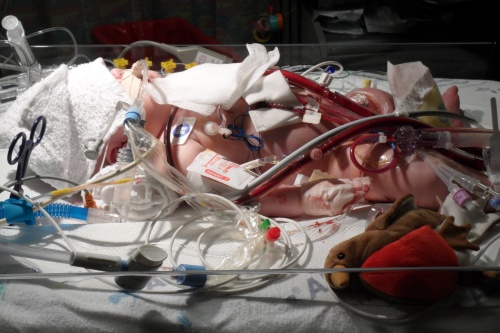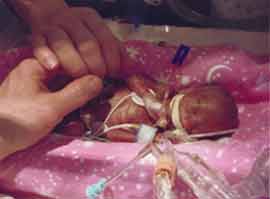In the years since I last posted, I have been rather busy. My last post involved my trip home from the college I attended in a large city, somewhere in the Midwest. Since then, I have attended a couple of other colleges and have obtained my degree. I graduated from University in December of 2013 with a Bachelor of Science with a Major in Nursing and have been working for a year now.
This post will be a departure from my previous posts where I reviewed books. And, I may not return to reviewing books at all in my later posts (if I ever actually write them). I am using these posts as a way to look back from where I started in the beginning of my career and to see how I grow as a nurse.
As I mentioned, I graduated in December of 2013 with my BSN and I was hired by one of the major medical centers in my (not impressively-large) city in the Northwest. I work in the Neonatal Intensive Care Unit, commonly referred to as the NICU ("Nick-you"), which is the ICU for infants. I explained what I did this week to someone and I realized how little people know about such a specific and access-limited area. So, I'll explain what exactly the NICU is and does... Well, as best as I can.
The NICU is where infants who are just born or were born in the last 30 days are admitted for treatment. Infants who are older are no longer in the "neonatal" period (which means "new baby") and would be admitted to pediatrics. The NICU I work in is a Level III, which means that we can treat infants born as low as 22 weeks gestation -before they've hit the 6th month of pregnancy. We are not up to a level IV NICU- which means that we send infant with complicated cardiac issues to other hospitals, where they will receive surgerical correction or other treatments. We also do not perform other specific types of surgery- e.g. complicated eye surgery. We are not ECMO-certified, which is what makes us a Level III, versus a Level IV. ECMO is essentially heart and lung bypass; it is a machine that oxygenates and filters the blood and pumps it to the body, thereby bypassing the heart and lungs.

A Level II NICU cares for Infants born at greater than 32 weeks gestation and without respiratory support greater than oxygen through a nasal cannula. So as a Level III, we can have infants on the ventilator (with breathing tube) or CPAP ("continuous positive airway pressure- pressurized oxygen that assists in keeping the infant's lungs open), and there are many degrees and modes of respiratory support that we provide. I could explain, but then it would become rather technical and since my (one) reader is probably not a respiratory therapist (RT), it wouldn't be very helpful or interesting.
Many people are most interested in our premature infants or "preemies", especially those that are what we call "micro-preemies"- they are born before 26 & 27 weeks gestation and weigh-in under one and a half pounds. They appear very fragile, and they can be both more resilient than they appear and more delicate than you think.

There are a huge list of complications that these patients can experience and I'll probably discuss them as I (hopefully) continue to post. But that is brief overview of the NICU I work in. In the last year of working there, I have grown and improved immeasurably. I love my job! Working with the parents, Neonatologists, Neonatal Nurse Practitioners, RTs, and other RNs to help babies get better is the best job that I can imagine. I'm so glad that I was hired where I was, and that I got the chance as new nurse to work in such a difficult and complicated place!








